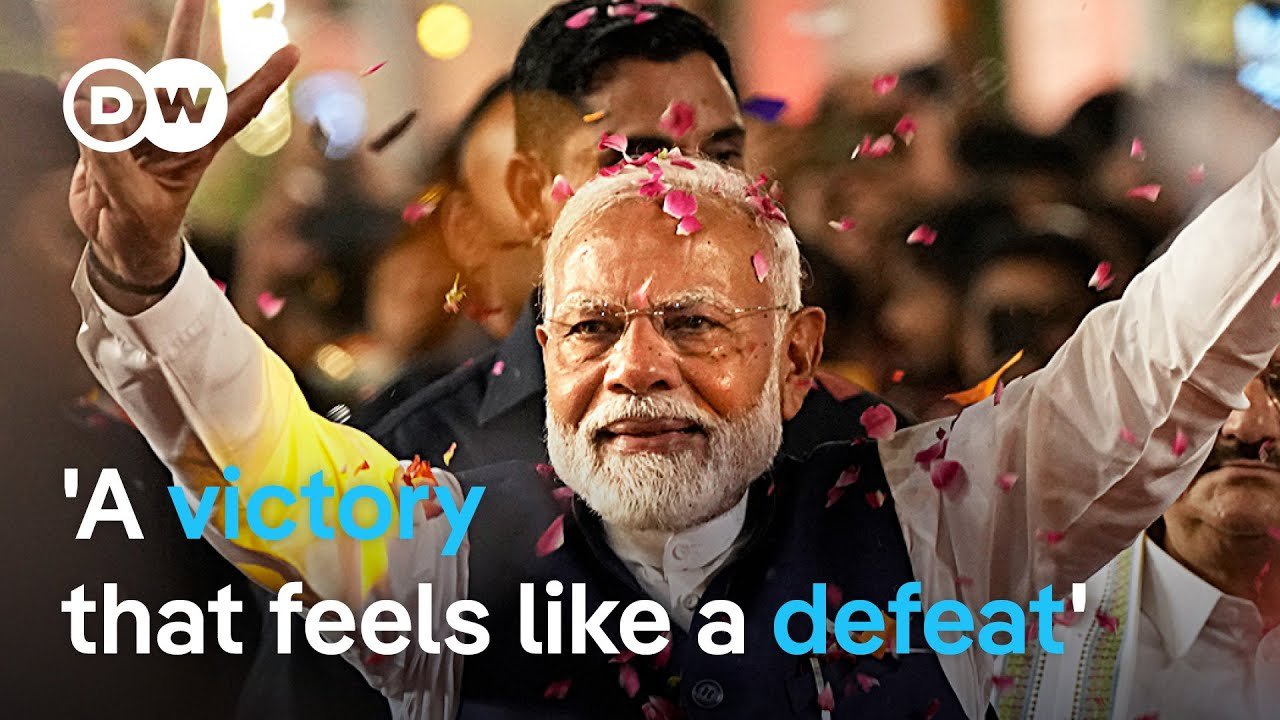- India’s Prime Minister, Narendra Modi, and his Hindu nationalist party, the BJP, have lost their outright majority in Parliament, leading to a reliance on coalition partners for governance.
- The BJP suffered significant losses in Uttar Pradesh, a previously strong bastion of support, which contributed to their reduced majority in Parliament.
- Financial markets reacted negatively to the election results, and critics argue that the outcome signals dissatisfaction with Modi’s economic record and divisive politics.
- Opposition parties and their supporters have interpreted the election results as a rebuke of Modi’s leadership, especially concerning his handling of economic issues and societal divisions.
- Despite the setback, Modi hailed his victory as a historic feat and emphasized the win for democracy, becoming only the second Indian leader to win three consecutive terms.
- Analysts suggest that the BJP’s reliance on coalition partners may lead to a change in Modi’s governance style, which has previously been characterized by bold, unilateral decision-making.
- Concerns over unemployment, inflation, and Modi’s religious rhetoric were significant factors in the election, with some constituencies rejecting the BJP despite its attempts to appeal to Hindu majoritarian sentiments.
- The election witnessed over 640 million votes cast, making it the largest general election in the world.
DW News is a global news TV program broadcast by German public state-owned international broadcaster Deutsche Welle (DW).
AllSides Media Bias Rating: Center
https://www.allsides.com/news-source/deutsche-welle-media-bias
Official website: https://www.dw.com
Original video here.
This summary has been generated by AI.

Leave a Reply